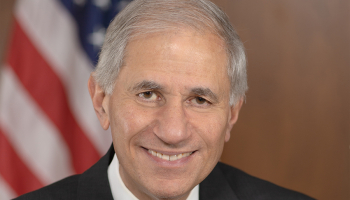Banks Push Back on Higher Capital Requirements
Regulators are considering asking more banks to hold more capital in the wake of the SVB and Signature collapses
- |
- Written by Banking Exchange staff
 FDIC website
Martin Gruenberg, chair of the Federal Deposit Insurance Corporation (FDIC)
FDIC website
Martin Gruenberg, chair of the Federal Deposit Insurance Corporation (FDIC)
Raising capital requirements for mid-sized and regional banks could reduce the financial support available for customers and businesses, the American Bankers Association (ABA) has warned.
Martin Gruenberg, chair of the Federal Deposit Insurance Corporation (FDIC), said in a recent speech that his agency — along with the Federal Reserve and the Office of the Comptroller of the Currency — was considering extending the minimum capital buffers that currently apply to banks with more than $250 billion in assets to include those with more than $100 billion.
In a speech last week to the Peterson Institute for International Economics, Gruenberg said the proposal had been “influenced” by the failures of Silicon Valley Bank, Signature Bank, and First Republic Bank, all of which had total assets of between $100 billion and $250 billion.
He continued: “The lesson to take away is that banks in this size category can pose genuine financial stability risks and the federal banking agencies need to review carefully the supervision of these institutions, particularly for interest rate risk in the current environment, and the prudential requirements that apply to them, including capital, liquidity, and loss absorbing resources for resolution.”
Gruenberg argued that, if Basel III liquidity and capital requirements had been applied to Silicon Valley Bank, “it might have averted the loss of market confidence and the liquidity run” as the bank would have had more capital held against riskier assets.
Gruenberg was making the case for the implementation of the final phase of Basel III regulations, an international framework established in the wake of the 2007-09 financial crisis.
However, in a statement, Rob Nichols, president and CEO of the ABA, said the association was “disappointed” by Gruenberg’s comments and warned that additional capital requirements for mid-sized and regional banks would “make it particularly difficult… to provide credit to consumers and businesses during times of economic stress”.
Nichols added: “America’s banks are already well capitalized — something Chair Gruenberg, [Federal Reserve] Chair [Jerome] Powell and Treasury Secretary [Janet] Yellen have all reiterated in recent days…
“We have long believed that regulation should be tailored to a bank’s risk and business model. Arbitrary asset thresholds and changes not justified by rigorous data and evidence are a mistake that will only make it harder for banks of all sizes to meet the needs of their customers, clients and communities while driving financial activity to less-regulated nonbanks.
“The stakes are too high for consumers and businesses to simply rely on regulators’ assurances about the future. Policymakers will need to demonstrate that the benefits outweigh the significant costs to the economy.”
In his speech, Gruenberg made the case that any new requirements would be phased in gradually over several years. Proposed new rules would issued “in the near term” by federal regulators, he added.
Tagged under Compliance, Compliance/Regulatory, Duties, Feature, Retail Banking, Feature3, Community Banking,
Related items
- Inflation Continues to Grow Impacting All Parts of the Economy
- Banking Exchange Hosts Expert on Lending Regulatory Compliance
- Merger & Acquisition Round Up: MidFirst Bank, Provident
- FinCEN Underestimates Time Required to File Suspicious Activity Report
- Retirement Planning Creates Discord Among Couples













